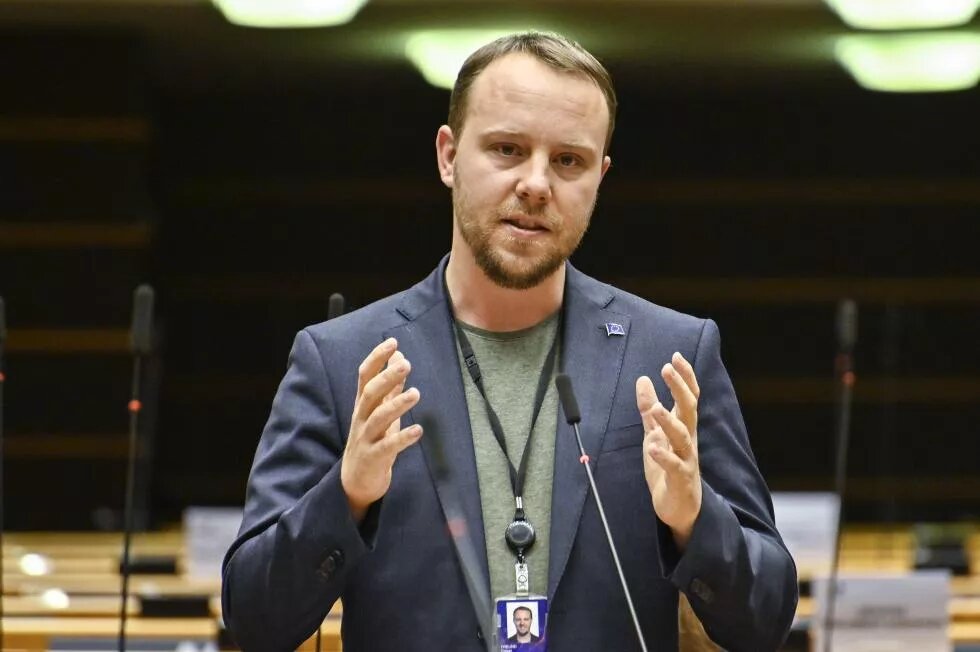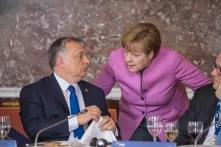MEP Daniel Freund (Greens/EFA) rates the new EU Rule of Law mechanism as a success despite all the criticism. For the first time, the disbursements of EU funds are linked to compliance with the Rule of Law, with the aim of combating corruption and illiberal attacks to democracy and fundamental values.

This commentary is part of our dossier on the Rule of Law in the EU.
Sofia, September 2020. Through the narrow streets, between rows of tall buildings outside the Presidency Building the calls of tens of thousands of protesters echo back and forth. They have taken to the streets to demonstrate against the corrupt manoeuvrings of the government of Prime Minister Boyko Borissov. Some of the voices in this choir of the disaffected, however, are calling for help from the EU. In their personal conversations, young people in particular repeatedly demand that payments of EU assistance to the government be cut off: “They are supporting a corrupt elite and are being misused to dismantle the rule of law and democracy”.
Corruption Made in Europe
During my travels through Hungary, the Czech Republic and Bulgaria this year, I heard many similar calls to the European Union to put subsidies and payments on hold, reduce them or stop them altogether. These demans sound radical. At first glance, they appear to contradict the philosophy of European solidarity. And yet, they arise from the frustration of many young activists to see a political elite whittling away the rule of law and basic human rights. They are an expression of the frustration of opposition politicians caused by seeing billions of euros disappearing into the pockets of government cronies. This throws an uncomfortable European truth into sharp relief: the way the European Union spends its money has contributed to the rise of corrupt, autocratic structures in its Member States.
When billions of euros of European taxpayers’ money are paid in aid to the governments of the Member States, there are virtually no controls on part of the EU as to how this money is sent and who its recipients are. This lack of accountability leads to structural abuses. One can only guess, how much of this money is channelled into illegal coffers in the EU every year. For Bulgaria alone, the figure could run to several hundred million euros. In Hungary, we are talking billions.
There are two major ways in which EU money is being misused. Firstly, it props up the political power of a party elite and, secondly, it enriches all those who have secured their political access to it. Structurally, the stream of money from Brussels is akin to the oil revenue of the Gulf States: it is external income that is available only to a highly exclusive circle and, concerning its expenditure, there is almost zero accountability.
Lining pockets and holding onto power
Hungary is a tragic example of this. The government is throwing universities out of the country. The free press and opposition parties are hounded mercilessly. The free media is bought up and then gagged. And while all this is going on, Viktor Orbán’s closest allies are growing unbelievably rich. Orbán’s father owns Europe’s most profitable quarry. He has a virtual monopoly on supplying the building materials for EU-funded construction projects and has turned an estate in his home village into a golf course. Orbán’s son-in-law has made millions selling and installing LED street lighting. Sponsored by the EU.
The opposition MP Akos Hadhazy has documented the sophisticated system of systematic pillaging of EU funds. Public tender procedures are manipulated and are ultimately only ever won by companies with links to Viktor Orbán. 19 major companies are registered to the modest home of Orbán’s old school friend Lörinc Meszaros alone.
According to conservative estimates, of every euro of EU aid spent, at least twenty cents end up in the private pockets of Orbán’s entourage. Irregularities have been noted in hundreds of more than 40,000 projects. Very few investigations by local public prosecutors and the EU anti-corruption agency OLAF have, however, led to charges or fines.
In Bulgaria, Bivol – a collective of investigative journalists – has documented how common corruption with EU funds is in the everyday lives of Bulgarians. It may be overpriced renovation projects, broken paving slabs, an out-of-order lavatory or a minister who admits that the aim of the game is to siphon off as much money as possible into your own pockets. Almost everywhere you go, there are tales of how public money has been plundered and diverted into the further enrichment of a small elite group.
The arrogance and selfishness of the powerful destroys trust in politics and it destroys trust in the European Union. This is what angers the ordinary men and women taking to the streets. And it sends a disastrous signal: if you want to be successful, you need to be part of this system, or else you must leave the country.
Money as leverage for the rule of law
Corruption with EU funds and the decline of the rule of law in certain Member States of the European Union are closely connected. Consequently, any European action to safeguard the rule of law and democracy must hit corrupt politicians where it hurts: at their bottom line.
From 1 January next year, the EU will have an instrument at its disposal to connect the payment of EU funds to compliance with the principles of the rule of law. It is a success, but by no means a magic wand. The road to the mechanism was rough and stony – and many changes were made during the months of negotiations to the version initially proposed by the European Commission and improved by the European Parliament.
Even though the current law on the protection of the rule of law in Europe has (rightly) come into criticism, it should be borne in mind that in summer 2020, the mechanism looked as though it was on the brink of collapse. At the summit of EU heads of state or government in July, planned sanctions for EU States infringing on fundamental rights and the rule of law were watered down to almost nothing.
The German Presidency of the EU Council later presented a position that did not even contain the term “rule of law”. Extensive – and unnecessary – concessions were made to the Hungarian Prime Minister Viktor Orbán far too early in the game. Thus, the EU Council set off on a collision course with the European Parliament.
Orbán vs. EP
It is entirely thanks to the negotiating team of the European Parliament that the trilogue negotiations were able to salvage a fit-for-purpose rule of law mechanism from this “capitulation” to Viktor Orbán. Even though the law that was brokered is ultimately not as powerful as the European Parliament wanted, the compromise is still far more potent than what the German Presidency had come up with. The outraged protests from Warsaw and Budapest are a clear sign that this rule of law mechanism is by no means a paper tiger.
In the final round in the rule of law spat, the Polish and Hungarian governments let their masks fall completely. They were prepared to plunge Europe more deeply into crisis by vetoing the EU budget and coronavirus recovery fund – simply to block the rule of law mechanism.
The negotiations are over. With effect from 1 January 2021, the European Union will, for the first time, have in place a mechanism that connects the payment of EU funds to compliance with the principles of the rule of law. This means that the EU has an instrument that can be used not just to protect the rule of law, but also to clamp down on corruption.
The EU Commission must now show that it is serious about defending our values and fighting corruption. A test of the law by the European Court of Justice (ECJ) must not mean a grace period for rule of law infringers such as Viktor Orbán and co. The European Commission must use the time to bring all current tools to bear to defend the independence of the judiciary and tackle corruption. We must not leave the citizens of Hungary and Poland out in the cold without a functioning rule of law.
The answer to the crisis has to be more integration
It will not be possible to measure the worth of the rule of law mechanism until it has been used. Until then, however, the EU must, as a matter of urgency, learn some lessons for the future. The Polish/Hungarian veto threatened to topple the community of states into severe crisis. Corruption and authoritarian tendencies are on the rise – and not just in Poland and Hungary. If we consider Europe to be a community of values embedded in solidarity, we will need to develop further. If it is our wish to take effective action against anybody flouting our values, then we need to be more powerful, more democratic and closer to the citizens.
The Conference on the Future of Europe is just around the corner. It must find answers, working jointly with the citizens and give answers to the crisis of the rule of law in Europe. Answers to rampant corruption. Answers to an obsolete institutional structure in the EU that managed to avoid the disintegration of Europe in the pandemic year of 2020 only by the skin of its teeth.
This commentary was first published in German on boell.de.



